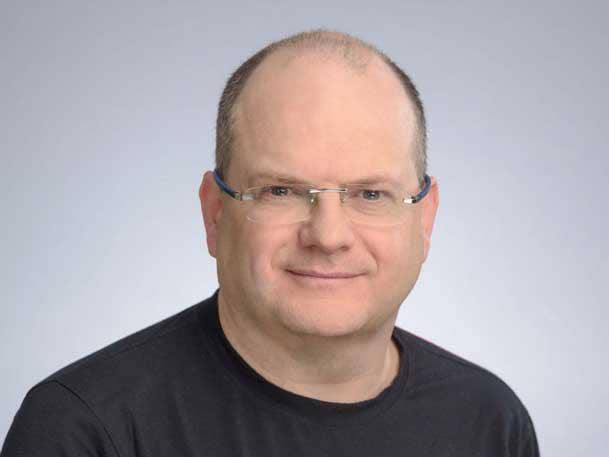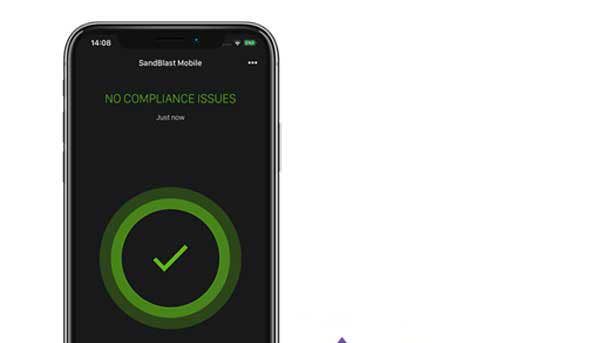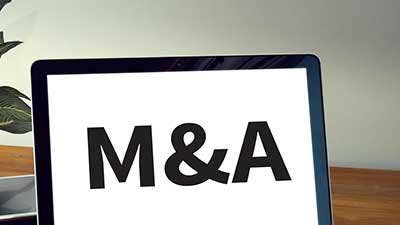Check Point CEO On Palo Alto Networks, Fortinet: ‘We’re Providing By Far Better Security’
Gil Shwed says Palo Alto Networks and Fortinet’s real strengths are in ‘sales and marketing machines.’

Gil Shwed, the legendary founder and CEO of Check Point Software Technologies, wants to make two things clear: He respects rival cybersecurity giants Palo Alto Networks and Fortinet, but he doesn’t believe their security products come close to matching Check Point’s offerings.
“We’re providing by far better security,” Shwed recently told CRN.
“I don’t want to discredit (Palo Alto and Fortinet). They are strong, valid competitors. But I think that we’ve been… Let’s put it this way. I think they’ve been much stronger sales and marketing machines than we are and that’s something that we need to improve (upon). In terms of innovation, technology and mainly providing better security, we are providing better security every step of the way in every area.”
Besides taking diplomatic shots at Check Point’s faster-growing competitors, Shwed also told CRN in a wide-ranging interview that his company plans to continue acquiring firms, likely in the cloud security field, and that he believes major consolidation lies ahead for the cybersecurity industry in general.
He also expressed his commitment to the channel and his satisfaction with Check Point’s recent expansion outside network security and into cloud security, email security and managed detection and response (MDR) businesses.
“I think we’ve really, really expanded what we’re doing,” Shwed said of Check Point’s recent broadening of its security offerings.
But his remarks about Palo Alto Networks and Fortinet are sure to raise eyebrows within the cybersecurity industry.
Considered by many the corporate granddaddy of cybersecurity and developer of the first true firewall, Check Point, whose headquarters are located in San Carlos, Calif. and Tel Aviv, Israel, has seen slow revenue growth of late compared to Palo Alto Networks and Fortinet.
In fiscal 2021, Check Point’s revenues grew by 5 percent, to $2.1 billion, while Palo Alto’s revenues soared last fiscal year by 25 percent, to $4.25 billion, and Fortinet’s sales surged by 29 percent, to $3.3 billion.
Meanwhile, Check Point’s shares have been trading for a while now at a considerably lower price than its rivals, or about $124 a share as of the close of trading on Tuesday, compared to Palo Alto’s $473 stock price and Fortinet’s $282 per share.
Though Shwed appeared to give his two rivals a backhanded compliment when he said they had stronger “sales and marketing machines” than his firm, Check Point is indeed beefing up its own sales force by about 25 percent.
Shwed talked more about that and other issues in his interview with CRN. The following are excerpts from that interview:

How is Check Point’s so-called ‘pivot’ to other security areas going, i.e. to cloud security, email security and the MDR business?
I think it’s going very well for us. I think we’ve really, really expanded what we’re doing, from just being the leader and known for our network security to (having an) entire platform. Now we could look at it and say, ‘Okay, we have a lot of products.’ But in reality, what we have is something different. We have a platform, it’s called the Infinity Platform. And I think that’s very, very unique in the market today. We have a set of security technologies which we believe are the best, and then a set of delivery technologies, like network, end point, cloud and so on, and we are connecting the two together. This way we get the full coverage (of) the entire security landscape. And this is very, very different from pretty much every other company today in our marketplace.
Of the three security areas you’ve been looking at lately, is there one of them that’s further along than the others. If so, why?
I think we’re doing pretty well on all of them. Again, the network security, we’re just seeing a very nice resurgence and growth with new innovations. I’m here, by the way, visiting the U.S. for the first time since the beginning of (pandemic). We’ve met with many customers over the last three or four days. … On the cloud, I’m seeing a lot of traction. We’ve been seeing very, very nice growth. And, by the way, even though we are a tiny player in this space of endpoint security, I think we’re getting amazing feedback for our security.

In February, Check Point announced it was increasing its sales force by 25 percent. How many people have you hired so far? And how many will be hired in total?
I think we’ve said that we want at the beginning of the year to make a big investment in our go-to market so we can serve more customers and grow our frontline sales by 25 percent. We’re actually doing quite well. We’re more than halfway there in terms of hiring so far. And I believe that within the next month or two we’ll hit that target and then we’ll have the challenge to keep it up and maybe grow further
Do you have a number? How many have you actually hired or plan to hire?
I would rather not share specific numbers. But, again, in terms of percentage wise, we were very upfront and said 25 percent and I think we’re halfway there in terms of the growth. We’ve hired a lot of people, because keep in mind there’s also natural attrition, and this year has actually been very, very good for us in terms of growing and hiring. We’re actually, for the first time maybe in the company’s history, ahead of the headcount hiring plan in all of our departments. As I said, in sales we’re on the way to hit the target and I think that within a couple of months we’ll be there.

Will these new employees be working with channel partners or will some be direct sales?
First, all of our sales are done with partners and I think that’s one of the unique things about our business model – 100 percent going through the channel. However, we do have a lot of what I call direct touch with the customers. And it’s going very, very well, especially in America, because in the U.S customers want more of the vendor direct touch. In other parts of the world, we see more low-key partners. One of the things that I’m trying to actually instill in the company is working more and better with the channel. The cybersecurity channel is pretty much a channel that we built 20 some years ago. Many of the partners, they are people that I helped start up. … The channel is very, very dear to my heart.
You’ve previously mentioned the current labor shortage and how it’s been hampering cybersecurity in general throughout the industry. How has it impacted Check Point?
First, it impacts everyone all over the world in most professions. Especially in cybersecurity, there’s a shortage of skilled people. But I think what I said is that for the first time ever we’re ahead of our hiring plan.

You’ve mentioned you think consolidation in the cybersecurity industry is necessary. How many of today’s security firms do you think we’ll be around in say, five years? And how much consolidation are we talking about?
I don’t have a number and I don’t like to guess the future. But I think most of the technology companies will have to be consolidated. And by the way, you see today, many, many cybersecurity companies. It’s clear to them that they’re not here to stay or to build a sustainable business. But they are here to create something and be acquired and make money -- and I don’t think, by the way, there’s (anything) wrong with it, of course. But I don’t think that’s the right objective when you start a business. When you start a business, you want to be there and you want to provide the technology to everyone.
Moving forward, do you see Check Point buying more firms?
Absolutely. I think we’ve been pretty consistent on that. We’ve been very selective. We haven’t bought a lot of companies. But the last few years we’ve acquired a company or two every year. It’s been fairly consistent. We’ve acquired good companies with good technologies. Most of them weren’t giant acquisitions. Most of them were mid-sized companies with good technology.

Is there any type of security firms that you’re particularly interested in acquiring?
We’re looking at the cloud and looking at every different area of focus. I won’t reveal all of them but one of them is cloud technologies. That’s one of them. Some things are a priority and some things are not. We’re quite open to see things that can augment our platform. What’s most important is we’re not just a supermarket that has to have a lot of products. We are a platform and we need technologies that can contribute to our platform and that the majority of our customers will want to join. Our number one goal is to provide better security to our customers.
Some say Check Point, by pushing into new security areas, is basically following the lead of Palo Alto Networks and Fortinet. Do you think that’s a fair characterization?
Not really. I think they’re both good companies and have been showing amazing business results. But in terms of providing security, we’re providing by far better security. And in terms of creativity and providing so many technologies that we’ve pioneered and that they are following us, especially around security. Again, I don’t want to discredit them. They are strong, valid competitors. But I think that we’ve been… Let’s put it this way. I think they’ve been much stronger sales and marketing machines than we are and that’s something that we need to improve (upon). In terms of innovation, technology and mainly providing better security, we are providing better security every step of the way in every area.

What do you think of Palo Alto Networks and Fortinet? What do you think of them?
As I said, I think they’re strong companies (with) good sales and marketing machines. Each one of them is very, very different, by the way. They have different strategies, different implementations and they’re doing them successfully. And I think where we shine is simply providing a better platform, better security for the customers. Each one of them (Palo Alto and Fortinet) has their own advantages, but I think they’re not providing better security. ... Fortinet is very good in providing low-cost, super-fast firewalls. But when it comes to the level of security, we’re doing a much better job.
What do you think is the greatest cybersecurity threat today?
Oh, I wish there was just one. If there was just one, maybe we could solve it and then bring the world to a safe place. But unfortunately, we are dealing today with the fifth generation of cyber attacks. I think that part of our job is to prevent the next cyber pandemic. And just like we had the biological pandemic, we can have a cyber pandemic. Where could it come from? It’s everywhere. I mean, it can come from the network. It can come on the endpoint. It can be denial of service attacks. It can be so many things. it can be stealth attacks issued by governments. It could be criminal attacks. It can be just a group of kids or activists that are trying to promote an agenda. … We are in a very, very challenging and active battlefield today.

Do you think Russia will resort to more cyber attacks in the west and elsewhere if the war in Ukraine drags on? How much of a threat are the Russians?
It’s a good question. I think between Ukraine and Russia, we saw some increases in cyber attacks, but not as much as everybody expected. There is a good question: why? Is it their capabilities, or maybe they just didn’t want to expose their capabilities? One of the risks in a cyberattack is once you use it, everybody knows what you are. Then what you have is many people can use the same methodologies (and) more sophisticated people should be able to block these attacks. … To be honest, I don’t think that’s the biggest risk that we have today in the world, with the Russians escalating the level of cyberattacks. I hope I’m not wrong with that. But I think there’s no doubt that a country like Russia, just like most advanced countries, have a pile of cyber weapons that are either being used for intelligence, and we haven’t seen them or ready to be used.